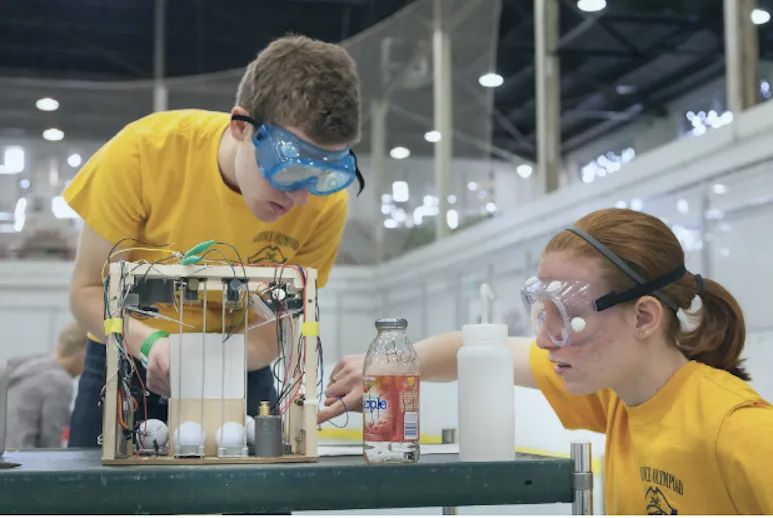Northern Michigan University's Seaborg Center is scheduled to host the annual Michigan Region I tournament for the 2024 Science Olympiad from 10 a.m. to 5 p.m. Saturday, Feb. 24, in NMU's Science Building. About 300 Upper Peninsula students typically compete in 46 events. The top-placing middle school and high school teams at this event will go on to compete in the state tournament at Michigan State University in April.
The Science Olympiad is a co-curricular education program that strives to inspire the upcoming generation of scientists, medical health professionals, and engineers. The organization has committed to building a strong science, technology, engineering and mathematics workforce through encouraging diverse students to enroll in STEM courses; fostering opportunities for student teamwork, collaboration and problem-solving; developing hands-on STEM content with industry and educational partners; platforming mentors to share subject-matter expertise; and recognizing outstanding achievements by students and teachers.
Students competing at the Science Olympiad engage in hands-on experience: the event will feature design creation, problem-solving, and opportunities to develop a deeper understanding of the necessity of cohesive teamwork. The event is altered each year to reflect the transient nature of genetics, earth science, chemistry, anatomy, physics, geology, mechanical engineering and technology.
This year's tournament events are divided into five categories:
1.) Life, Personal, and Social Sciences: anatomy and physiology, disease detectives, ecology, forestry and microbe mission.
2.) Earth and Space Science: astronomy, dynamic planet, fossils, geologic mapping, meteorology, reach for the stars and road scholar.
3.) Physical Science and Chemistry: air trajectory, can't judge a powder, crime busters, detector building, forensics, optics and wind power.
4.) Technology and Engineering: flight, robot tour, roller coaster, scrambler, tower and wheeled vehicle.
5.) Inquiry and Nature of Science: codebusters, experimental design, fast facts, fermi questions and write it do it.

